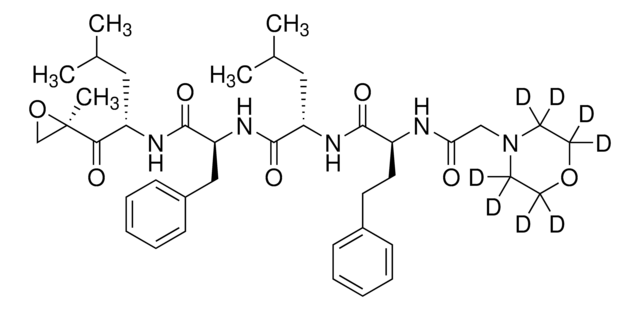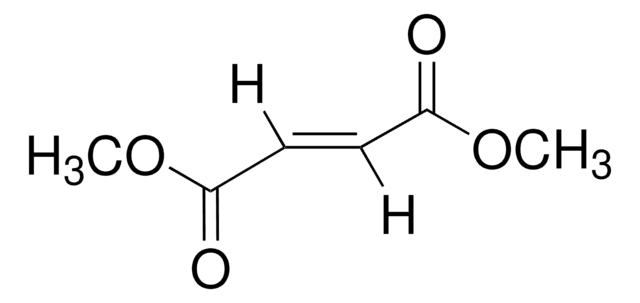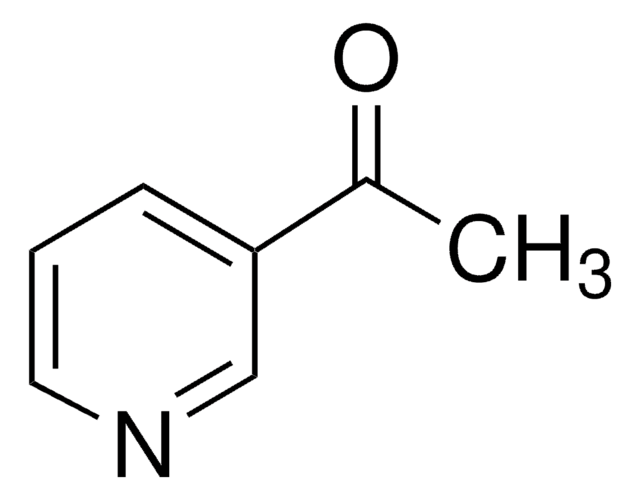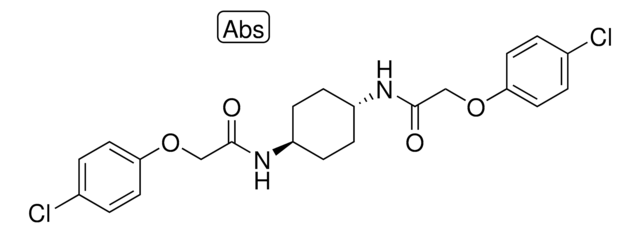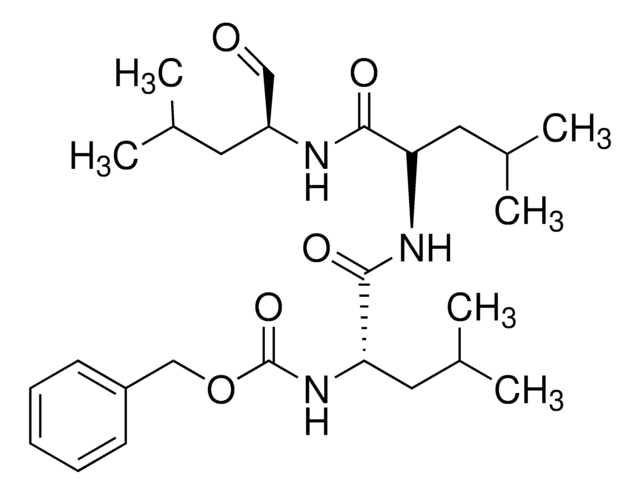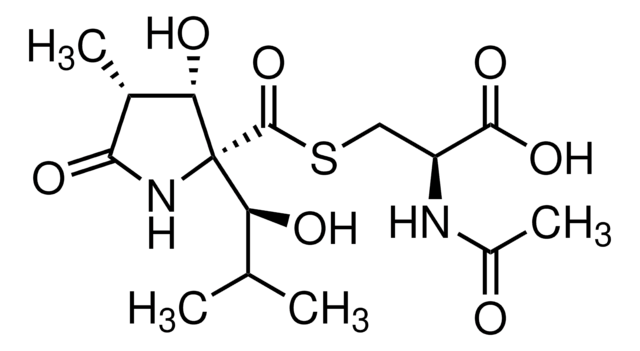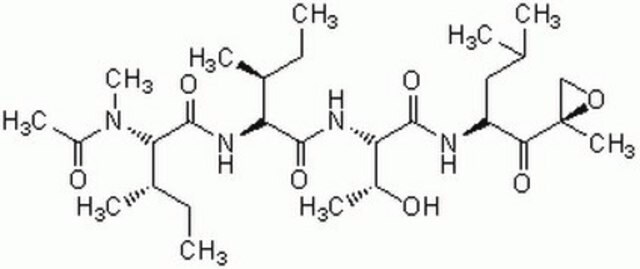5.04314
Bortezomib
≥98% (LC/MS), solid, 20S proteasome inhibitor, Calbiochem®
Synonyme(s) :
Bortezomib, (R)-3-Methyl-1-((S)-3-phenyl-2-(pyrazine-2-carboxamido)propanamido)butylboronic acid, BTZ, LDP-341, LDP341, MG341, MLN-341, MLN341, PS341, Proteasome Inhibitor XXII, PS-341, MG-341, Pyz-Phe-boroLeu, BTZ, LDP-341, LDP341, MG341, MLN-341, MLN341, PS341, Proteasome Inhibitor XXII, PS-341, MG-341, Pyz-Phe-boroLeu, (R)-3-Methyl-1-((S)-3-phenyl-2-(pyrazine-2-carboxamido)propanamido)butylboronic acid
About This Item
Produits recommandés
product name
Bortezomib,
Pureté
≥98% (LC/MS)
Niveau de qualité
Forme
solid
Fabricant/nom de marque
Calbiochem®
Conditions de stockage
OK to freeze
desiccated (hygroscopic)
protect from light
Couleur
off-white
Solubilité
DMSO: 100 mg/mL
ethanol: 2 mg/mL (with sonication)
Température de stockage
−20°C
InChI
1S/C19H25BN4O4/c1-13(2)10-17(20(27)28)24-18(25)15(11-14-6-4-3-5-7-14)23-19(26)16-12-21-8-9-22-16/h3-9,12-13,15,17,27-28H,10-11H2,1-2H3,(H,23,26)(H,24,25)/t15-,17-/m0/s1
Clé InChI
GXJABQQUPOEUTA-RDJZCZTQSA-N
Description générale
Application
Actions biochimiques/physiologiques
Caractéristiques et avantages
- Cell permeable and enables targeted action
- Allows reversible modulation of cellular processes
Conditionnement
Avertissement
Notes préparatoires
Reconstitution
Autres remarques
Tamatani, T., et al. 2013. Int. J. Oncol.42, 935.
Beck, P., et al. 2012. J. Biol. Chem.393, 1101.
Fang, H.T., et al. 2012. Proc. Natl. Acad. Sci. USA.109, 2521.
Chen, D., et al. 2011. Curr. Cancer Drug Targets11, 239.
Demo, S.D., et al. 2007. Cancer Res.67, 6383.
Adams, J., et al. 1999. Cancer Res.59, 2615.
Teicher, B.A., et al. 1999. Clin. Cancer Res.5, 2638.
Adams, J., et al. 1998. Bioorg. Med. Chem. Lett.8, 333.
Informations légales
Code de la classe de stockage
11 - Combustible Solids
Classe de danger pour l'eau (WGK)
WGK 3
Point d'éclair (°F)
Not applicable
Point d'éclair (°C)
Not applicable
Certificats d'analyse (COA)
Recherchez un Certificats d'analyse (COA) en saisissant le numéro de lot du produit. Les numéros de lot figurent sur l'étiquette du produit après les mots "Lot" ou "Batch".
Déjà en possession de ce produit ?
Retrouvez la documentation relative aux produits que vous avez récemment achetés dans la Bibliothèque de documents.
Les clients ont également consulté
Notre équipe de scientifiques dispose d'une expérience dans tous les secteurs de la recherche, notamment en sciences de la vie, science des matériaux, synthèse chimique, chromatographie, analyse et dans de nombreux autres domaines..
Contacter notre Service technique